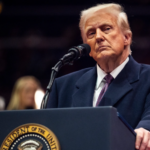
The Pentagon will unveil its fiscal year 2020 presidential budget (PB) request Feb. 4, the department’s chief military spokesman said Dec. 10.Whether the topline will be $700 billion or $750 billion remains to be seen. Army Col. Robert Manning declined to comment on recent reports that President Trump is now considering submitting a $750 billion defense budget next year during an off-camera press briefing at the Pentagon Monday.“We are working with [the Office of Management and Budget] to determine the…

 By
By 








